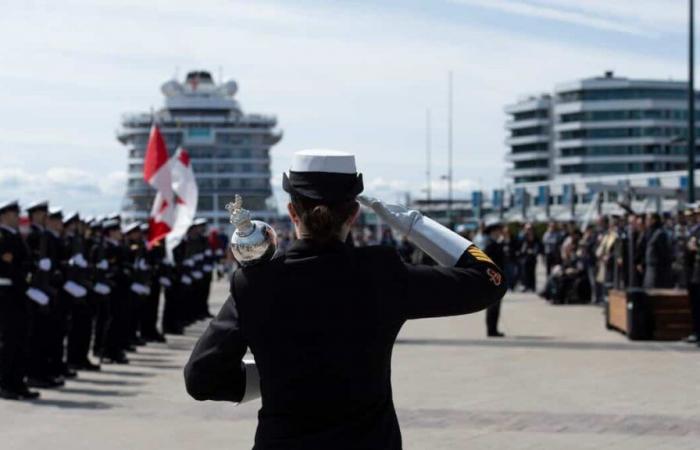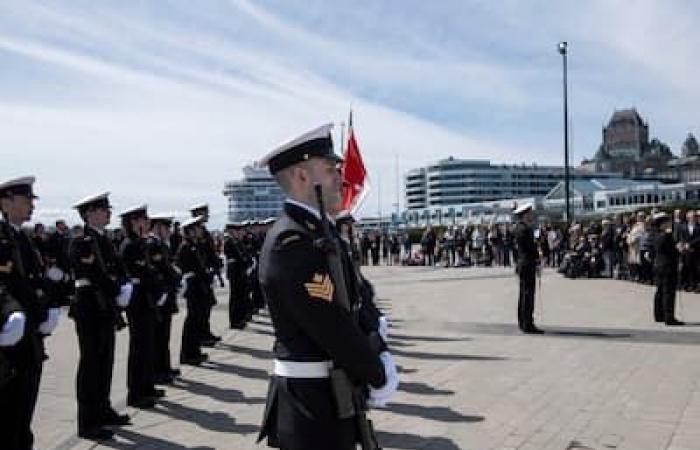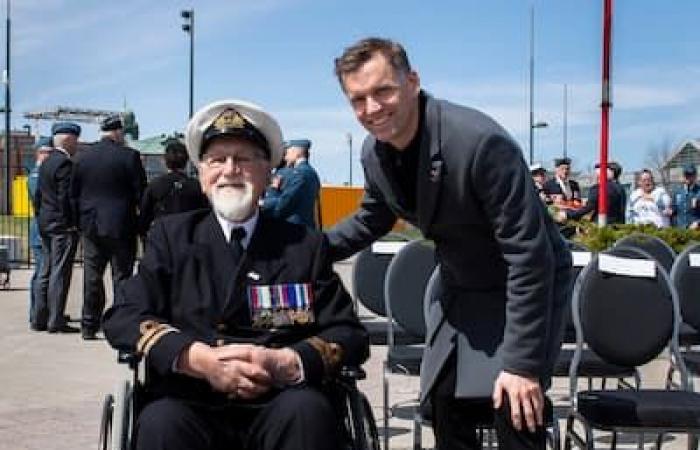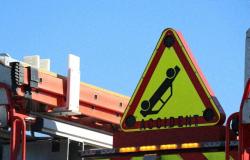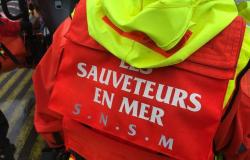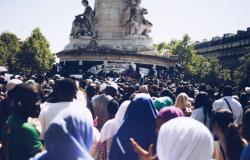NCSM members Montcalm met on Sunday at the Port of Quebec to commemorate the sacrifices made by thousands of Canadians who fought 80 years ago during the Atlantic Battle, the longest without interruption of the Second World War.
“It is a duty to remember that we have towards all those who served during the Second World War,” launched the commander of the NCSM from the start Montcalmthe frigate captain Jean-François Leblanc.
The members of the naval reserve were therefore gathered with veterans and members of the community to remember the 95,000 Canadians who, between 1939 and 1945, fought for their country. Recall that 4,500 of them never got home after making the ultimate sacrifice.
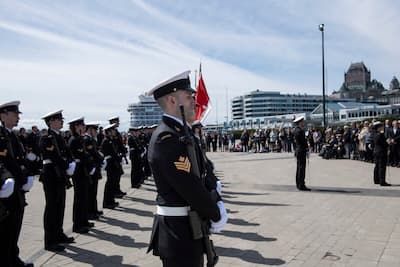
Aviator Jimmy Grimard – Valcartier imaging service
“The battle of the Atlantic is a significant chapter in the history of the Royal Canadian Navy. […] At sea as in the air, sailors and aviators have joined forces to defend freedom. Today, we remember them, ”continued Commander Leblanc.
During this period, the Canadian Royal Navy participated in destruction, or destroyed them itself, of 33 German submarines and 42 enemy surface ships.
2210 of its members died and lost 33 ships. Canada’s merchant navy has also lost more than 70 ships and 1,700 lives there. For its part, the Royal Canadian aviation has lost 900 members.
A brand guest
A distinguished guest was also present for the ceremony in the morning, one of the rare witnesses of the battle of the Atlantic to be still alive, in order to deposit a crown.
Gaston Pettigrew, who celebrated his 100e Birthday birthday just a few weeks ago, was only 18 years old when they got into the Canadian Royal Navy in 1943.

Gaston Pettigrew, veteran of the Second World War, along with the mayor of Quebec City, Bruno Marchand. Aviator Jimmy Grimard – Valcartier imaging service
On board the NCSM Ettrickloaned by the British navy, his group was responsible for escorting convoys of ships filled with goods and food between the American continent and Great Britain.
The one who had always dreamed of being a sailor, like his ancestors, carried out until 1945 no less than 11 crossings of the Atlantic.
Nothing gained
For his part, the frigate captain Jean-François Leblanc wanted to recall that it was important not to hold our security for acquired because we never know when things could switch, especially in the current global context.
“Perhaps we keep our security too much to acquire today. It is important to understand that there are people who have given a lot so that we can enjoy it today, but also that it could get lost quickly. ”
“We had more than 30 years of stability, during which we had difficulty justifying military spending, but currently, we realize that it could tip much faster than we have capacity to build and if it happens, we will have to do with the means at hand,” he concluded.

